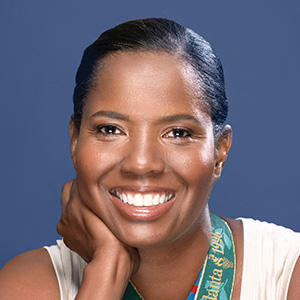This content contains references to suicide, suicidal ideation, and other types of mental health challenges. If you or someone you know needs help, contact the NAMI Helpline or text HOME to 741741 to reach a volunteer crisis counselor.
The youth mental health crisis is growing at an alarming rate
Today’s youth face unprecedented mental health challenges that add a new level of complexity to the typical adversities of childhood and adolescence.
Factors including the residual effects of the COVID-19 pandemic, systemic discrimination, mass violence and the pervasiveness of social media have profoundly impacted the mental wellbeing of young people and contributed to increased levels of distress and poor mental health.
According to the Centers for Disease Control and Prevention, in 2021, more than 42% of high school students reported feeling persistently sad or hopeless—a 40% increase from 2009. In addition, nearly one-third of students said they experienced poor mental health and more than 1 in 5 students have seriously considered attempting suicide. This research also shows experiences are significantly more common among female youth, LGBTQIA+ individuals and students from diverse racial and ethnic backgrounds.
An alarming number of serious mental health challenges go undiagnosed, and for many youth, the barriers to asking for help and accessing treatment can be significant.
Olympic medalists and World Cup soccer champions speak up
At this year’s RBC Capital Markets Global Healthcare Conference, Andrew Callaway, Head of U.S. Healthcare Investment Banking, RBC Capital Markets, spoke with U.S. soccer legends Briana Scurry and Dr. Sara Hess, who shared their personal stories and discussed their work as advocates for youth mental health.
Scurry and Dr. Hess grew up as soccer prodigies, and they succeeded on the world stage as part of the U.S. National Team, winning multiple Olympic medals and a historic victory at the 1999 FIFA World Cup championship.
Both suffered traumatic career-ending injuries and overcame debilitating mental health challenges on the road to recovery. Their experiences inspired them to share their stories and advocate for systemic changes in treating and providing access to mental health support.
In 2002, Dr. Hess tore her ACL and MCL during a match and underwent seven surgeries, nearly dying from infection during one. Despite her competitive attitude, she faced severe depression and developed an eating disorder. With the help of family, she recovered and successfully pivoted to a career as a licensed psychologist.
Working with young patients, Dr. Hess reports that poor mental health brought on by the pandemic has now become the norm for youth, and not enough has been done to address the loss and sadness they experienced.
“Things wear you down mentally...I liken it to being in this little boat in the storm and the waves are just crashing and crashing”
Briana Scurry, World Cup Champion & Olympic Gold Medalist, U.S. Women's Soccer
Briana Scurry suffered a concussion-inducing head injury in 2010 that ended her career and resulted in a three-year battle to get proper medical care and deal with the related mental health struggles.
A lack of awareness and research around concussions and brain injuries, specifically for female athletes, made it difficult to find knowledgeable medical professionals and to get the right treatment care she needed for her injury. Scurry suffered mentally, and without knowing how to ask for help was driven to the point of suicidality.
Fortunately, Scurry did get assistance and received experimental surgery and therapy that led to her recovery.
As an advocate and public speaker, she now champions the need for more research into concussion-related injuries in sports, especially for young people. Her work also focuses on raising awareness about suicide and reducing stigma, so more people can talk about it and ask for help.
Recommendations for changing youth mental healthcare
Help is needed in many areas to improve and scale mental health interventions to provide youth with access to critical support. Some of the key recommendations that Dr. Hess and Scurry shared include:
- Encouraging healthcare companies to invest in medical and clinical research for underrepresented youth audiences.
- Building partnerships with healthcare and biotech companies to deliver youth-specific mental health solutions.
- Supporting school and community programs that provide prevention education for caregivers and peers of young adults.
- Providing platforms that challenge cultural attitudes so that people feel comfortable talking about their mental struggles and asking for help.
Positive change is already happening. In psychopharmacology, for example, modalities have been adjusted to provide short-term pharma intervention alongside cognitive behavioral therapy (CBT) for youth at risk of suicidal ideation.
Technology is also playing an important role. New mental health apps, crisis communication centers, and social media platforms serve as channels for youth to find community and resources in times of need.
“Partnerships are very powerful because it only takes people to go in the same direction to make a difference”
Briana Scurry, World Cup Champion & Olympic Gold Medalist, U.S. Women's Soccer
Investing in youth mental health is an imperative for everyone
Untreated mental health challenges don’t just affect the individual; they also have a negative impact on our families, communities, and economies.
The overburdened medical community alone can’t solve the current crisis. Creating a brighter future, where we can successfully prevent and treat youth mental health challenges, requires collective involvement and investment from sectors and stakeholders that can influence a systemic response.
Working with long-term community partners, the RBC Foundation USA proudly supports programs nationwide that are improving youth mental well-being through awareness and increasing equitable access to critical support.
Learn more about the RBC Foundation USA and its commitment to youth mental health.


